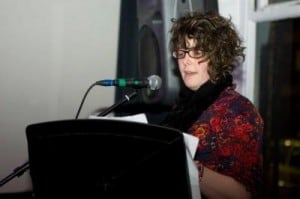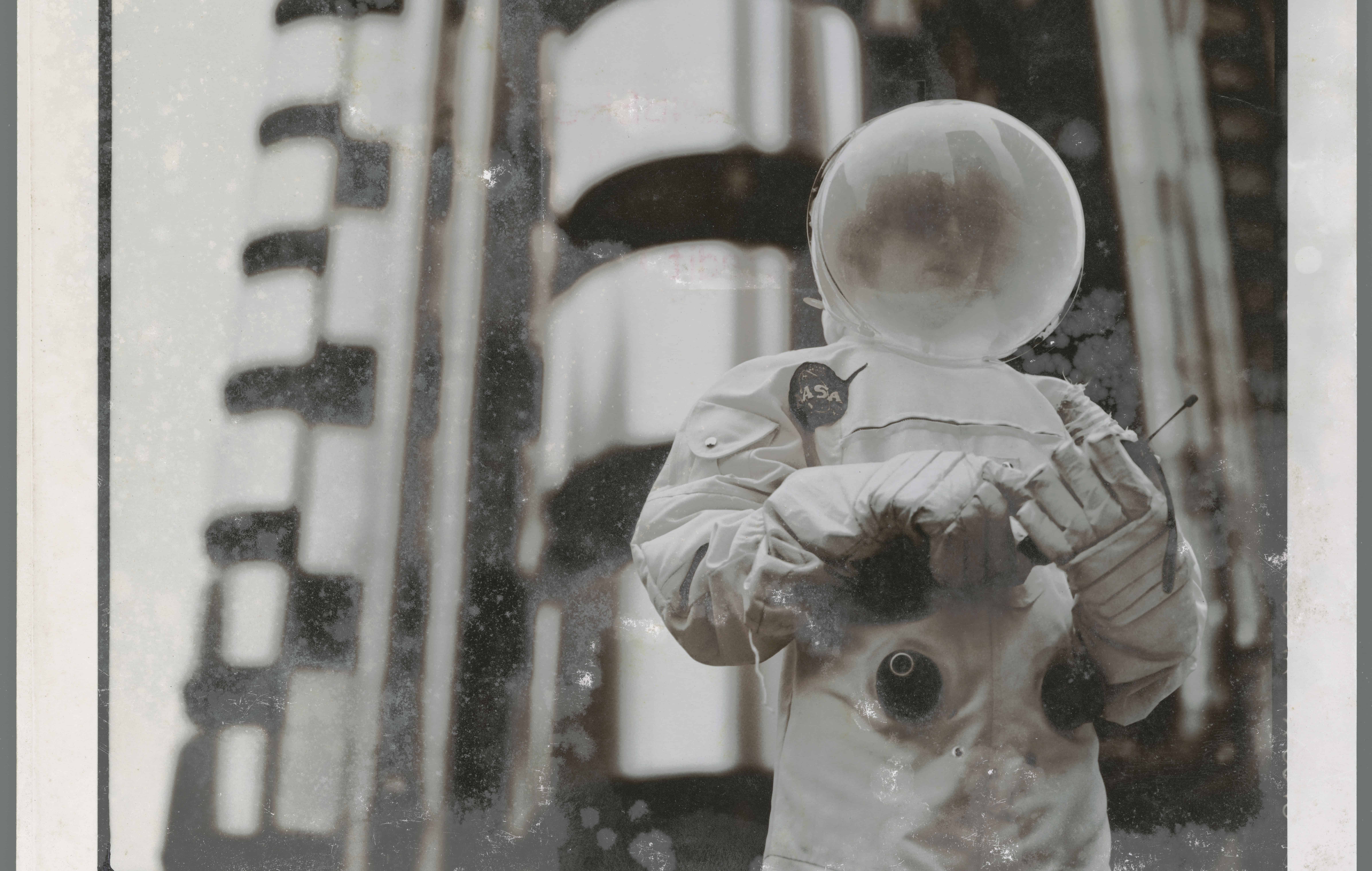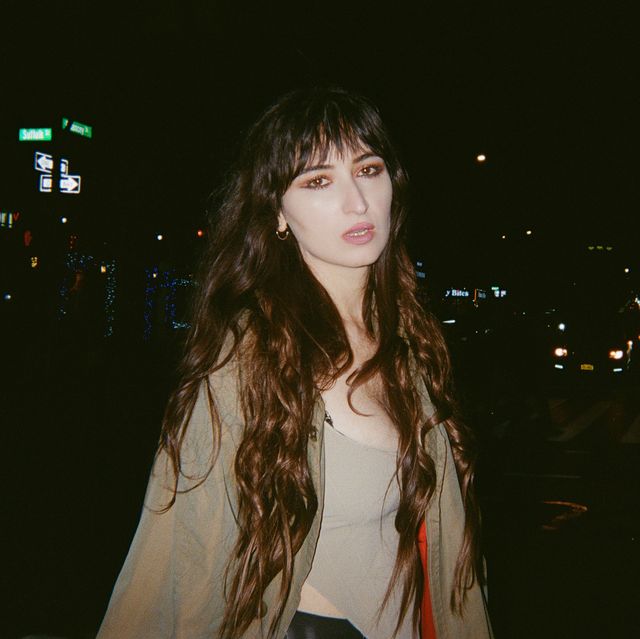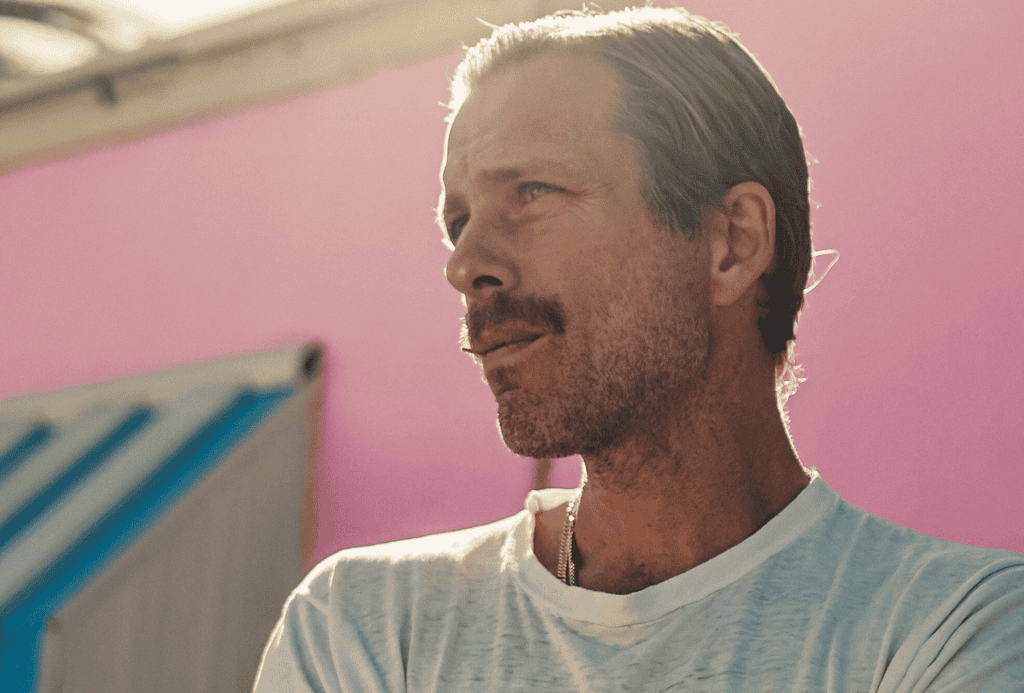Picture the scene – you’ve organised a night of entertainment. The performers are booked, a sterling array of bum-squeakingly exceptional talent ready and revving their performative engines backstage (or outside chain smoking, which is pretty much the same thing at spoken word gigs). The venue’s filling up with punters merrily playing relay from their tables to the bar.
[like_to_read][/like_to_read]Everything is ready but there’s a missing ingredient, that special something that weaves a night together and samples the pulse of the room. That something special is an integral ingredient and calls for unique skills of empathy and perceptiveness. That something special also often needs to remember info about each performer so that they can introduce each one in a manner that will tell the audience from the outset how high or low to shift their respective brows. That something special is what we call a compere and, when good, that something special will make all of this essential work seem utterly effortless. There are many kinds of compere of course – there’s the loud, in-your-face variety, dragging a crowd along (or perhaps making them head for an early exit), there’s the comedic compere – an often self-deprecating individual who soaks up any sneers the room may have to offer in order to leave the performers free of such negativity (or once again they may just make a crowd uncomfortable), and countless other varieties (although if you’d like a more solid estimate, I’d say about seven and a half). Then there is Sarah L. Dixon, the self-professed ‘Quiet Compere’, currently kicking up dust in her wake as she quietly and modestly puts on a series of events gathering some of the finest performers from cities across the north. We sat down with the mild-mannered glutton for punishment to discuss what on Earth would possess someone to, not just put on a single show, but a full tour of them.
First thing’s first, we ask just what Sarah’s up to at the moment.
“Literally,” she begins with a smile. “I’m watching my three-year old son Frank wash five dishes and in the process empty most of the sink on to the floor and the chair he is stood on.” She moves on to give us a rundown of what the “Quiet Compere Tour of the North” is all about.
“12 cities, 10 poets with 10mins each local to each city. I call it quiet because I am not funny on demand or ‘perfomancey’. I like to introduce poets only by name rather than huge bibliography. Let the poems do the talking. We have a mix of established and less well known performers, and it’s the latter that often steal the show!”
For the rest of us mere mortals this would probably be enough to send us into overworked and stressed-out meltdown, but Sarah continues with a few more of her projects:
“There’s also a group called the Quiet quiet LOUD! at Lloyds Bar, Chorlton on the third Weds of each month. I’m running workshops too at the Horse+Jockey, trying to coax parents to do something for themselves. It’s shocking how many assume it is all about the child and their growth once they are born. Parents still have a need to learn, grow and create.”
Sarah gives us a little insight into when it was that she first got mauled by the poetry beast. “Well, it was something I did as a way to understand the world and also as a means of play when I was a teenager.” Sarah says openly. “When I took A-Levels my mum and dad said don’t take social science or English, do science because you will be more likely to get a job in that area. I took Biology, Chemistry and English Lit. The other options were Maths and Physics and already regarded as impossible by me. I left uni and got a job in the NHS. I had to get a first proper job at the same time as my first boyfriend and I had split and I had failed Uni! I remember long hours on buses to work crying into The Omen trilogy books. Though it can’t have been the months I imagine as the books are slender volumes and the journeys were twenty minutes. So, in short, my mum and dad were of the mind-set that once you leave school you put away the poetry and art and get a proper job. I am a person who runs on adrenalin and possibly always have (useful in being a parent) so when I had a job 37 hours a week and no desire for a new boyfriend – for a while – I had to find something to fill the other hours. I completed an OU degree in Social Science and Economics over six years while working full-time and got a 2:1. Had no idea I would study economics for two years. Loved it! Strange! But after two years of Economics I wanted to replace this with something freer. Stockport Arts and Health through Stepping Hill offered Art, Photography and Creative Writing sessions for £30 for ten sessions – subsidised. I enrolled on the latter two and met Philip Davenport – who is now on my Stockport line-up for Quiet Compere – along with Sarah Pritchard – my English GCSE teacher, my first ever Consultant who is great at poetry and a pathologist married to a vicar so her poems are unique! Philip Davenport brought me back to writing.
After the ten weeks were over I felt this was something I had to do and found a Writing for Pleasure group at Cheadle Library. This is the first place I felt comfortable to run writing sessions myself. After a while I moved to Chorlton and found Copland Smith’s Manky Poets and through that was invited to his Wordsmiths group (which was invite only) and found constructive feedback was valuable. Around the same time I went to Swanwick Summer school and after several sessions I decided next year I wanted to go on a course that was more directed. I went to a dozen Poetry School workshops at Manchester Cathedral and made many new poetry friends (a number of whom are involved in the tour) and in 2007 went on an Arvon week with Julia Copus and Roger McGough. Around this time I had two pieces published by Paul Neads in The Ugly Tree and a piece accepted for Rain Dog. Performing at The Ugly Tree event was nerve-wracking as I had heard of some of the poets (which meant they were big), but by the third time I had performed at these events I felt confident I belonged among these poets and ran a poetry night at The Britain’s Protection in aid of The Christie where I worked at the time.”
After shaking off my obvious envy at the thought of getting the chance to do an Arvon course with Roger McGough, I push to see if Sarah has any opinions regarding Jeremy Paxman’s recent (at the time) remarks about poetry being something altogether too inaccessible these days.
“Well, I do think some poets are willfully difficult and the introductions to their poems tend to have to be longer than the poems. As a poet and audience member I myself prefer to listen to poetry that is at least understandable on first listen, even if after a few listens or readings deeper levels become apparent. I think of my job as a poet is to communicate with other people and connect with their experience through my own. To capture moments in the words that other people understand, but might not have chosen and to resonate with the listener/reader’s understanding and experience. I do not write with this in mind, but I also do not write with a complicated many-layered vision. So, I don’t write for the audience but the pieces I choose to perform would be pieces I think would be received well by the audience I am presenting it to, or at least understood by them. I am a straight-talking person by nature. I don’t like people talking circles around me in everyday life. I don’t mind a good debate, but people trying to be cleverer than the people they are talking to always rankles, especially if they blatantly aren’t smarter. No particular person in mind, but I have worked with consultants and registrars for seventeen years and could feel an embedded rage stirring then.”
Not wanting to see the mild-tempered poet hulk up, I move on to question how important publicly reading (performing seemed a poor choice of word here) poetry is. “I wouldn’t even sing in front of my husband when we first met,” she laughs. “I link this back to a time my mum caught me singing Gene Pitney’s Princess in Rags to myself in the mirror as a teenager. It took me about three years to sing in front of my husband. I now have a poem with singing in it. In the beginning at Manky Poets everyone seemed to be reading from their collection. I never went to the pub afterwards because I thought they’d ask me things and I’d prove I wasn’t really a poet! I remember my first ever gig to a non-poetry crowd as part of Chorlton Arts Festival (and with a mic) as being terrified by a dozen people and six dogs! I did a set at The Shangri La last year and a massive cabaret crowd intimidated me so much I decided to add props to the set and started off in a sleeping bag and ended up in a basque! I enjoy the sensation of performing. I love savouring the silence when you know you have the audience. Kendal was a particularly appreciative and silent crowd (when performers were reading). I think personally sharing poetry by reading it is important to me because I link the poems to the accent or inflections or actions of poets I know. I take Clare Shaw and Rod Tame on holiday in book form and if I read them I can hear their voices in my head. I would prefer to be able to memorise pieces better. There are a few I know off by heart. I go to nights that are mainly performance (rather than page poetry) and perform. I think it is important the two are not thought of as separate scenes.”
It’s refreshing to hear such open honesty from a writer, and also to find out that, while ‘Quiet’, this compere is certainly not shy about responding. Sarah also gives us a little look behind the curtain to see some of the people who she would consider to be influences on her and work.
“Living influences, I immediately think of Jess Green, Hollie McNish, Kieren King, and Tom Gill. Though I’m not a performance poet, I love a rhyme that makes me smile, comes out of left field and when done well performance poetry is stunning. I don’t often write in rhyme, though a Stockport poem is brewing, partly because of Tony Walsh’s Manchester poem, partly because of some brief banter about what Stockport is to me – on Twitter with Ian McMillan. I saw Shane Koyczan this year and his words, the way he says them, his ease on stage and the way he takes you into his journeys and adventures are all aims of mine. Yesterday someone told me about a bear of a man who walks into a room and takes the mic talking loudly enough to hear, but quietly enough to make the audience listen and be pulled further in. Wonderful skill. The Liverpool poets are definitely an influence. Roger has always been. Only discovered Brian Patten in the last year. Love love love. Carter USM – cracking lyrics and first band I ever saw. I once wrote a review of Too-Rye-Aye by Dexys. I did this because I could not comment technically on the music, but thought it would be interesting to write about how it made me feel and what images the music conjured up. For deftness with words, subject matter, delivery and manner Clare Shaw. This year is introducing me to dozens of new influences. I’m not going to list them all, but every gig I go to changes the way I think about poetry and that of others. Enriched by immersion but hopefully not diluted.”
Being a music-focused magazine (don’t look surprised you know that’s true) I naturally leap on Sarah’s mention of bands to query what is currently pleasing her earballs the most:
“My husband’s band Mother Tongue had single launch nights in Manchester and Preston in June and I have been asked to write a review for The Late Pioneers, another local band. I find it interesting to explore ways to describe what the music sounds like, reminds me of or makes me feel. Coming from a direction that is not musicianly or technical, I reviewed Dexy’s Too-Rye-Aye as a challenge about five years ago like this. Purely for my own entertainment and to play with words and think about sound. I recently went to the Gigantic Indie All-Dayer at the Manchester Academy and reveled in every minute of being fifteen again! Drinking beer, pogoing three rows from the front (aching hideously the next day. And hungover. Not as resilient at 37!). Finding other people in your favourite band T-shirt and bonding – Carter USM. Been to reunion shows in 2008 in Birmingham and 2011 in Manchester. They’ve still got it and my favourite song is ‘Skywest and Crooked’. Though the huge crowd reaction to ‘Do re mi so far so good’ was memorable. If you woke me from a sound sleep and asked me what year it was I would say “199….” and then think. Flaming Lips, Fleet Foxes, CSS, Mastodon, System of a Down, Art Brut…”
It’s an eclectic mix of musical musings that Sarah reels off and naturally my heart gives a little flutter at Mastodon and System, so I query about the connectedness she may feel exists between music and poetry.
“Similarities,” she begins. “The rhyme and rhythm and losing yourself in another person’s world for a while. Differences: poetry tends to be more personal, more raw. This sometimes makes it more powerful. Sometimes too heavily autobiographical. I am guilty of this too. I love my couple of dozen odd world/magical realism pieces, but can’t write them on demand. They just arrive when the feel like it.”
Back to the project at hand, it seems that Sarah L. Dixon must have limitless energy considering all the projects (and life, so much life) she has on the go. I was curious to find out how challenging the experience of putting on The Quiet Compere Tour of the North has been.
“Planning (contacting poets keeping mix of page and performance and different age ranges and backgrounds) having 3 reserves on hand, promoting, liaison with venues, box offices, printer and poets, press releases, social media. Setting up We Got Tickets where needed. Giving poets full information of venue, format, line-up, accessibility, payment well in advance of event. In touch two weeks before with running order (balancing delivery styles and content of poets as much as I can not knowing what they’ll read) and my phone number. Putting links to poet websites on event page. Replacing cancellations at a couple of days’ notice. Calling the venue a couple of days before and confirming tech requirements – PA and projector for logo. Sending correct document for projection – all venues different. Encouraging the poets on the day. Arriving at the venue early. Working door if no box office (much prefer box office – but venues tend to be pricier). Start each half because no-one ever wants to go first. Explain Quiet Compere concept and highlight ACE funding. Introduce poets by name only. No squirming of poets as they are “bigged up”. Thank and pay all poets from first half or who may need to leave early. Give all poets a flyer to keep. Thank poets, audience and venue from mic and in person where possible. Stick to time allowing quarter of an hour for run-over, but planning not to use it. Questionnaires. Thank you messages and photos in couple of days after event. Blog within the week. Review questionnaire feedback and make tweaks to plan for future events if needed. A bit of waffle to draw people in, a one line review of each poet with link and a poem inspired by the city in question.”
I very much zoned out at this point under the weight of all of this organisational malaise but Sarah snaps me back in:
“Challenging? Yes, but the admin side of it, and the thrill of asking people and them saying Yes bit, I have enjoyed most. Benchmarks of first ticket for an event selling and then as many audience as performers (in my opinion that is a success) though a higher number is obviously better for funding, poets and audience. Scary first time away from home in York. Sold some tickets. Hoped for walk-up. Numbers doubled on walk-up. I would have found the tour more difficult to coordinate if I didn’t have 17 years of NHS admin skills behind me. Birmingham was a particular challenge as I had never met any of the line-up. I planned the order through looking at YouTube videos where available, where not guessing at style from page poems. Sarah James was valuable in advising me about poets in the area. She told me about forty options. I chose the poets that were least likely to get the spotlight in some cases because I don’t want the same line-ups that always perform together. One of the joys of the tour has been bringing together old friends and forging new bonds between groups that have not or have rarely met.”
There’s been much written and said regarding inspiration and hard work – from Lorca’s ‘Duende’, to Edison’s ‘perspiration’, Poe’s ‘silences’ – I wonder if Sarah could tell us how she actually manages to get writing done.
“I run on adrenalin,” something it seems she has in abundance. “I also find that if I run myself too hard I will now catch tonsillitis (since Frank had it last year) and the antibiotics are worse than the illness) so I try to notice when I am getting run down and take it easy for a week. I write a lot of my pieces at workshops, as it is one of the only times I have free to write and usually find 2 or 3 pieces I like each time I attend a workshop. At other times I can go for months writing stuff I don’t particularly like at the time, but may do when revisiting notebooks a couple of years’ later. I make time to read other poets and am presently dipping in and out of Ben Mellor’s ‘LIGHT MADE SOLID’ and Clare Shaw’s ‘HEAD ON’. I have just read “FOUR FEATHERS” and “SOME GIRLS’ MOTHERS” each containing stories by four different poets, in prose, about having a parent and being a parent and these were honest and challenging for the poets in question. I also find I have to hush certain things in my life if I have something in my head I have to write down, even if it is only for a couple of seconds. I find exercise and walking provoke poems, or they clear all the other thoughts from my head so the poems can flow out. Swimming and walking particularly so because of their repetitive nature and the fact you can do them in a vague autopilot mode.”
Sadly, being the busiest of bees in the poetiverse (yup that’s a thing I promise you), we have to let Sarah go back to arranging a poetic cosmos around these here northern parts. So I ask her: what advice would you offer new poets on how to approach their creative practice?
“I still feel quite new and I am constantly learning about style and am keen to write more escapist stuff, which I find challenging. I suppose I would say: Some stuff is difficult to write. This can be just for you. Share what you feel comfortable with. Or pursue the butterflies and share honest thoughts. An audience often appreciates honesty. Get critical feedback and listen, but don’t take all the advice on board. Be selective – the poems are yours and remain yours. Find a number of people you trust to share your pieces with and give you feedback. Try different styles. Write some formal poetry, even if you prefer to write free verse. I started writing free verse and then dabbled with form and I like to have some kind of rhythm to my poetry or to have the same number of lines in a stanza and internal rhyme. Learn what you enjoy in your own poems and don’t do this too much. Learn the words you over-use and find new alternatives. Don’t write to be published or to win prizes. Write for you and if you are good these may come, but poetry does not pay big and this cannot be your first aim. Otherwise you will be writing for an audience you don’t know and self-censoring and directing theme and style. In doing this you will lose something raw and honest. Be careful about over-editing.”
She’s not done though, and before she goes back about her busy business she leaves us with a summary of her thoughtful advice:
“In brief: Play. Enjoy. Try different styles. Find other poets you trust. Get feedback. Be honest. Pursue butterflies. Stretch yourself. Try not to over-edit.”
And with that the not-so-quiet Quiet Compere whispers us farewell, and I spot a massive butterfly, so taking Sarah’s advice – I’m taking that sucker down!
You can find more about Sarah L. Dixon at her blog at the following link: http://thequietcomperemcr.wordpress.com/2014/07/08/emergency-shoe-shopping-mangoes-and-superman-leeds-blog/
And you can find all the details about upcoming Quiet Compere tour dates on the Facebook page here. Follow Sarah at: Twitter: @quietcomperemcr







